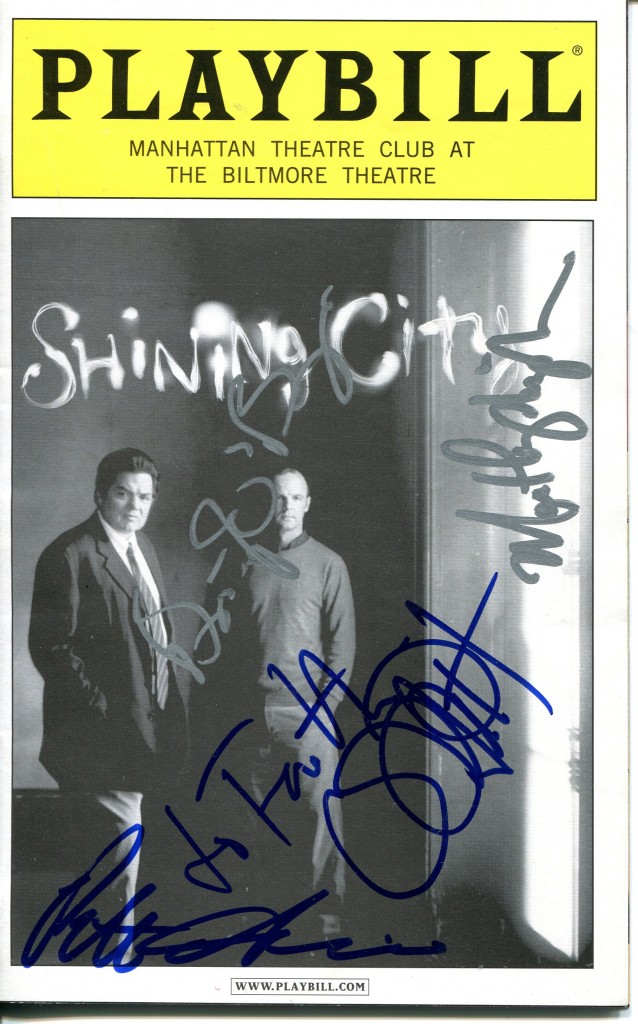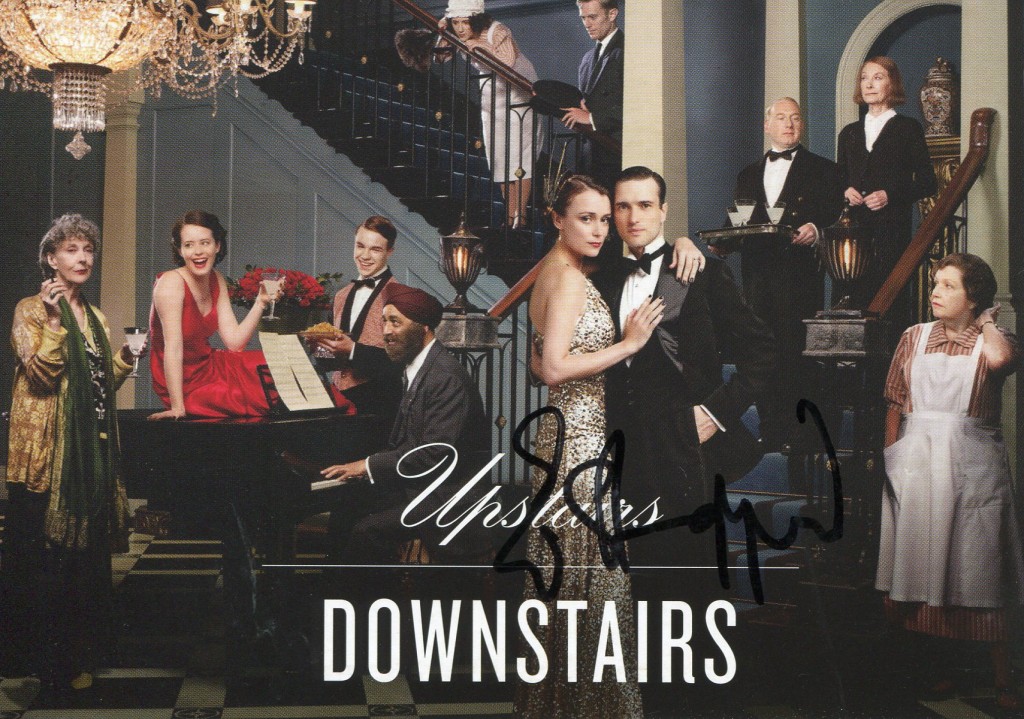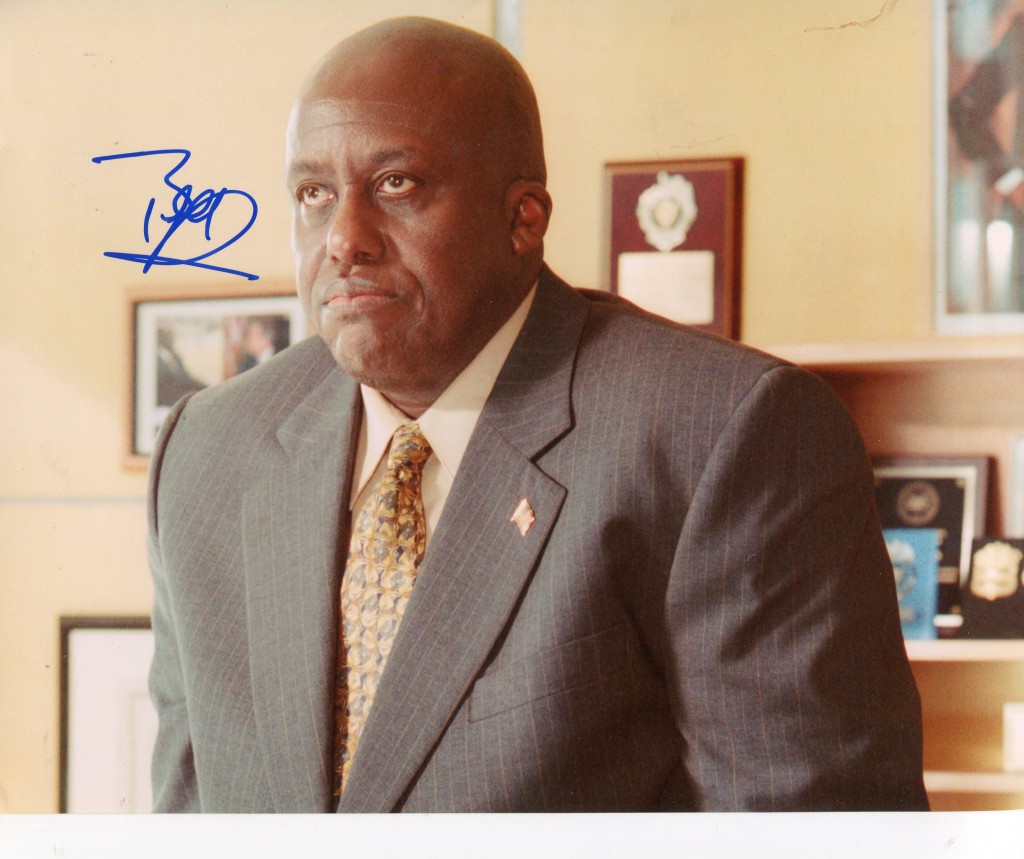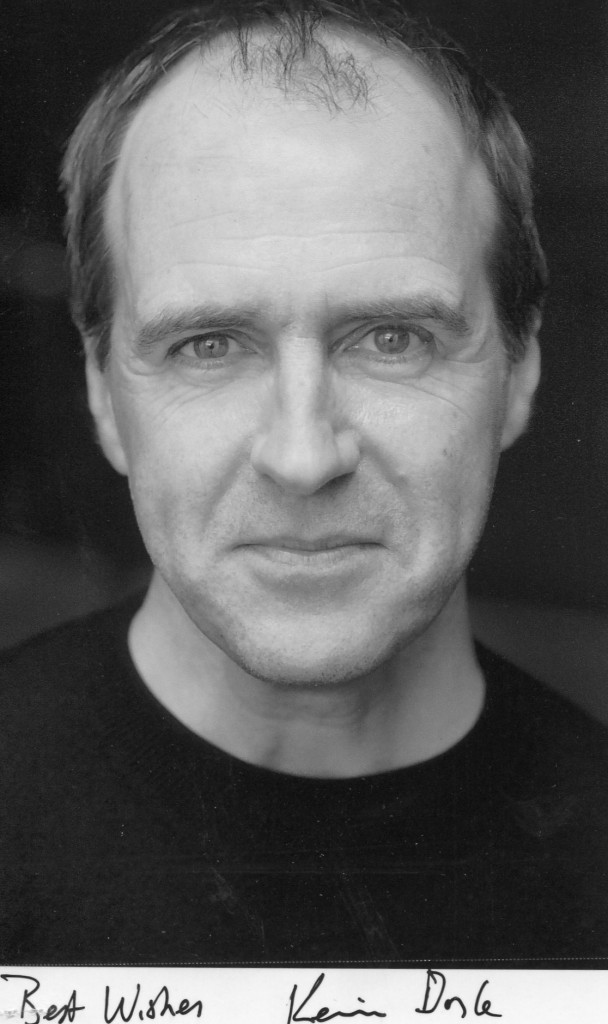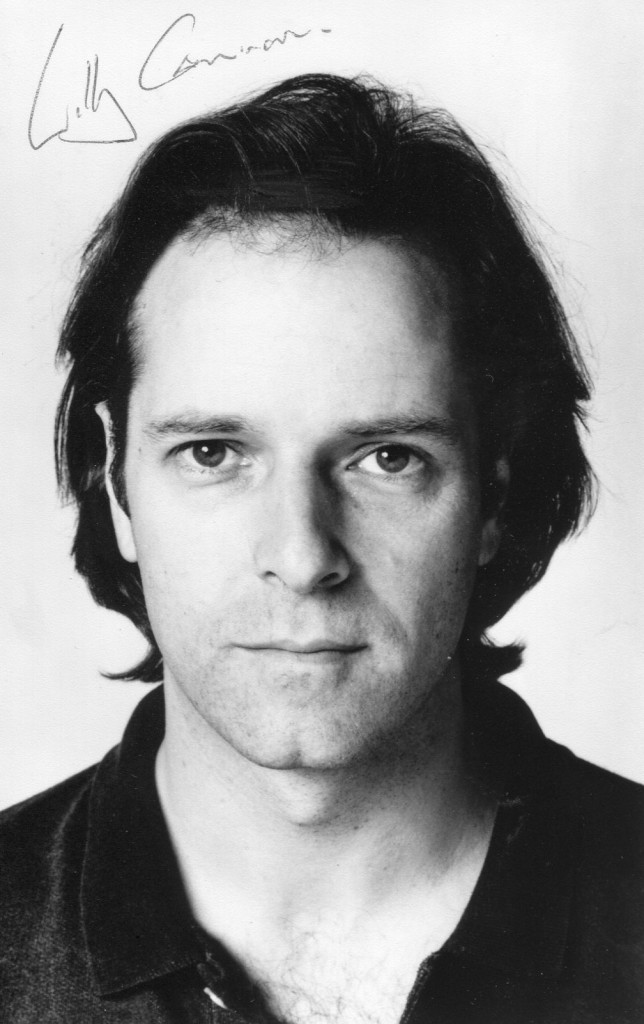Scott goes on to remark that he often dreads reading interviews with actors and hopes this won’t be another that he recoils from. “Sometimes talking about acting can be reductive and a bit boring. Of course,” he adds, breaking into a wry, self-mocking grin, “I’m not like that. I’m completely fascinating. Everything I say is a bon mot. It’s epigram after epigram. It’s like sitting with Oscar Wilde… Although I have better hair!”
Witty. Mischievous. Charming.
These are precisely the qualities that catapulted Scott to stardom as Moriarty in BBC1’s worldwide hit drama, Sherlock. People were already talking about him as a striking new talent after his first brief, if completely scene-stealing, 10-minute appearance in Steven Moffat and Mark Gatiss’s compelling modern-day reworking of Sir Arthur Conan Doyle’s classic detective stories.
His performance as Holmes’s dastardly foe – by turns mesmerising and menacing – won Scott the best supporting actor Bafta award last year, beating his co-star Martin Freeman (who plays John Watson in Sherlock) in the process.
It was not exactly an overnight success for Scott – the 37-year-old Irishman had for many years been turning in very creditable, if not such conspicuous performances in dramas such as Lennon Naked (in which he gave a memorable Paul McCartney opposite Christopher Ecclestone’s John Lennon), The Hour, John Adams and Band of Brothers.
But Moriarty, who appeared to come to a sticky end at the end of the last series on Sherlock, transformed Scott’s profile. Moriarty is the archetypal baddie who has all the best lines, and his popularity meant that the actor was soon being offered leading roles in ITV1 dramas such as The Town and The Scapegoat.
Scott, who was raised in Dublin, where his father worked in an employment agency and his mother was an art teacher, has the volume turned down in real life and has no need to turn the dial up to 11 in the way that Moriarty does. But you can see that he still possesses the same razor-sharp instincts as Sherlock’s arch-enemy.
Adversaries: Benedict Cumberbatch (left) as Sherlock Holmes and Andrew Scott as Jim Moriarty in the ‘Sherlock’ series-two finale ‘The Reichenbach Fall’The actor is the first to acknowledge that playing the role of Moriarty has moved his career up several notches. Picking at a croissant, he reflects that: “Sherlock has changed all our careers, and I’m really pleased about that. It gives you the benefit of the doubt because executives like to see recognisable faces.
“It was overwhelming to be on a TV show that is quite so popular. That took me totally by surprise. People had an instant affection for it from the first episode. The reaction was extraordinary. People still come up to me in the street all the time, wanting to talk about it.”
Sherlock fans are known as some of the most passionate in the business, but Scott says they are generally delightful. “There is this impression that the fans are crazy, but they’re not – they’re very respectful. They don’t overstep the mark. I get a lot of fan mail. Of course, some of it is a bit creepy, but mostly it’s very moving and creative. People send me drawings and their own versions of Sherlock stories. It’s a source of escapism for people and that’s great.
“I’m an enthusiast for people, and I don’t want them to become the enemy. I’ve seen that happen to colleagues who are disturbed the whole time, but there’s a certain degree of control you can have if you keep yourself to yourself. The kind of actors I admire move through different characters and genres. That’s the kind of actor I try to be. If you want that, you have to be circumspect about your private life.”
Scott thinks the character made such an impact because, “Moriarty came as a real surprise to people”. He adds: “He doesn’t have to do the conventional villain thing. He is witty, and people like that. He is also a proper match for Sherlock. He’s very mercurial, too. I have since been offered to play a lot of different characters, and that’s because Moriarty is a lot of different characters. He changes all the time.”
The next legacy of the “Sherlock Effect” is that Scott is starring in a one-off BBC2 drama entitled Legacy. An adaptation by Paula Milne of Alan Judd’s bestselling 2001 espionage novel, this is an absorbing contribution to the BBC’s “Cold War” season. In this film, set at the height of the conflict between the UK and the USSR in 1974, which goes out on Thursday 28 November, Scott plays Viktor Koslov, a KGB spy.
Charles Thoroughgood (Charlie Cox), a trainee MI6 agent, tries to reconnect with Viktor, an old friend from their Oxford days, in an attempt to “turn” him. However, Victor adroitly turns the tables on Charles with a shocking revelation about the British spy’s family. Deliberately shot in Stygian gloom, Legacy captures the murky world of the secret services where cynicism and duplicity are part of the job description. Its tagline could well have been: “Trust no one.”
The film convincingly conjures up the drabness of the 1970s, all three-day weeks, petrol rationing and power cuts. Scott says: “Characters in those days called from phone boxes – whoever does that now? The film fits the era. It has a melancholic tone. It’s very brown and downbeat.”
Scott particularly enjoyed playing the ambiguity of Viktor’s character. “I like the idea that you don’t know who he is. It’s important that you feel for Viktor and his predicament. You have to feel he’s a human being with a family. But both he and Charles are elusive figures – it’s not clear whose side they’re on. It’s not at all black-and-white, and that’s why the film is so shadowy.”
Life after death: Sherlock Holmes killed his character (or did he?) But Andrew Scott returns as Viktor Koslov in ‘Legacy’The actor boasts a terrific Russian accent in Legacy. Where did it come from? “There isn’t a huge amount of footage of Russians speaking English as a second language, so I started looking at Vladimir Putin videos on YouTube. But then Putin introduced anti-gay legislation this summer – so, being a gay person, I switched to Rudolf Nureyev videos instead. It was another Nureyev defection of sorts!”
Scott is low-key on the subject of his sexuality. “Mercifully, these days people don’t see being gay as a character flaw. But nor is it a virtue, like kindness. Or a talent, like playing the banjo. It’s just a fact. Of course, it’s part of my make-up, but I don’t want to trade on it. I am a private person; I think that’s important if you’re an actor. But there’s a difference between privacy and secrecy, and I’m not a secretive person. Really I just want to get on with my job, which is to pretend to be lots of different people. Simple as that.”
Scott is very much getting on with the job at present. He has many intriguing projects in the pipeline, including starring in Jimmy’s Hall, the new Ken Loach movie about a political activist expelled from Ireland during the “Red Scare” of the 1930s. He is also appearing with Tom Hardy and Ruth Wilson in Locke, a film about a man whose life is falling apart, and in The Stag, a movie about a stag weekend that goes horribly wrong. In addition, he is headlining alongside Bill Nighy, Dominic West and Imelda Staunton in Matthew Warchus’s movie Pride, a true story about an alliance between the mine workers and the lesbian and gay community during the 1984 miners’ strike.
If he can possibly find any spare time, Scott is also open to comedy offers. “Everything in life has to have an element of comedy about it. I did Design for Living at the Old Vic in 2010 – Noël Coward was a master of comedy. The audience were convulsing every night. It’s such a joyous feeling to hold a pause and wait for the laughter. There is no better high. Forget about drugs!”
But despite the fact that producers are now cold-calling him like overeager mis-sold PPI salesmen, Scott won’t be rushing into the first role he’s offered. One positive by-product of his success is his ability to be choosy about what he does. He observes: “You have to be brave to turn things down, but there is a certain power to that. I’ve had offers to do more regular TV series, but I don’t regret rejecting them. If money and fame are not your goals, then it becomes easier. American agents use the expression, ‘this could be a game-changer’. The implication is that you want the game to change. But I don’t. I don’t have a plan. I like unpredictability and randomness.
“People get distracted by box-office figures and take jobs because they think it will advance their careers. Of course, it’s nice to get a big cheque and be able to buy a massive house, but my view is that we’re not here long, so why not do something of value?”
So Scott is very happy with where he’s at. “To do all these different things is a dream for me. My idea of a successful actor is not the most recognisable or the richest – it’s someone who is able to do a huge amount of different stuff. I don’t want to be known for just one thing.”
It’s true that Scott is now broadening his career far beyond Moriarty. But I can’t resist one final question on the subject: Is there any chance that Moriarty will, like his nemesis, be making a Lazarus-like comeback in the new series of Sherlock? Scott has, after all, been photographed filming scenes for the upcoming third season.
“People ask me that every day. It’s a small price to pay for having been in such a wonderful show,” he teases. But he is forbidden from spilling the beans about Moriarty’s fate in Sherlock even to close family members.
So has Moriarty played one more dastardly trick on us by faking his own suicide? Or are the scenes the actor has been shooting merely flashbacks? Scott could tell us, but then – like some ruthless Cold War spy – he would have to kill us…
The above “Independent” interview can also be accessed online here.





